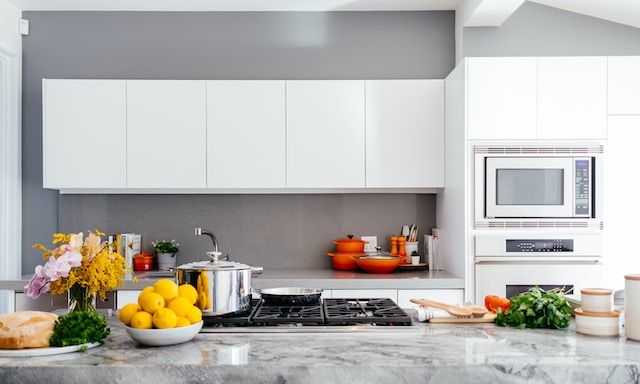Exploring Different Types of Marble for Countertops
Marble adds a touch of elegance to a kitchen and can work well in traditional or modern styles. It is a durable, beautiful natural stone and is easy to maintain with daily light scrubbing and resealing periodically.
There are many different types of marble available to homeowners. Let’s explore some of them in more detail.
Italian Marble
Choosing the right stone for your kitchen and bathroom is an important decision that will be an investment in your home. This is why exploring different options is important before settling on one.
Italian marble countertops Wexford PA is a popular choice for kitchen countertops because of its beautiful look and durability. Its distinctive color and veining patterns characterize this stone.
However, marble has its disadvantages when used as a countertop material. It is a porous stone easily stained by acidic liquids such as wine, tomato sauce and citrus juices. It can also develop small pits over time, which can be unsightly. It also requires regular sealing and maintenance. This can be costly and difficult to keep up with. Additionally, marble is softer than granite, making it more susceptible to damage and scratches.
Cultured Marble
Cultured marble is an artificial product of dyes, stone particles and resin. The result is a countertop that looks like marble but does not require sealing.
It is fabricated at a factory to your specifications and can be used for countertops, sinks and showers. It can be molded into many shapes and customizable for your style and taste preferences.
It is tough and resists scratches and stains well. However, it can be damaged by acidic liquids that soak into the surface and cause pitting and discoloration. It can also be scratched, chipped and etched, though these damage types are easily repaired with pH-neutral cleaners. It is less porous than real marble and thus isn’t as resistant to bacteria growth.
Vermont Marble
Marble is a classic choice for countertops because of its timeless beauty. Unlike plastic or solid surface countertops, it’s also a natural material, often called “faux” marble.
Marble can come in several different finishes, including polished and honed. Polished marble is shiny and more resistant to staining than honed marble. However, even honed marble requires regular sealing to reduce etching and staining, especially with certain foods like acidic juices and vinegar.
Some people think of marble countertops as the jeans of kitchens – they wear and age gracefully with your life, gaining organic character over time that another countertop material can’t duplicate. Others prefer the pristine look of a brand-new marble countertop. It’s important to understand the strengths and weaknesses of each when selecting your countertop.
Statuary Marble
Marble countertops offer an unparalleled elegance that no other countertop material can replicate. While laminate and solid surface countertops can mimic the look of marble, nothing comes close to the natural stone’s beauty and texture.
However, marble does require more maintenance than other types of countertop materials. This includes sealing the marble regularly and avoiding certain foods, such as acidic ones, which can cause etching or staining.
Regarding Italian marble, there are three main types to consider: Carrara, Calacatta and Statuary marble (also called Statuario). All of these varieties come from Italy, but they have different styles and costs. While Carrara has a bright white field with delicate veining, Calacatta has thicker veins and darker hues, while Statuary has dark grey streaks that contrast beautifully with the marble’s white field.
Crema Marfil Marble
Crema Marfil marble has a warm, neutral tone and subtle veining that fits many design styles. It can be used as indoor flooring, countertops and wall cladding. It also works as an accent piece to add elegance and sophistication to a room.
However, the marble is porous and will stain if exposed to acidic liquids. Marble can be sealed to prevent stains but must still be periodically resealed. Protecting your marble countertops from hot pans and using coasters, mats and cutting boards is best.
Marble can also etch, which leaves dull spots in the stone. This is caused by calcium carbonate reacting with acids. This can be avoided using a pH-neutral cleaner and avoiding harsh chemicals and abrasive cleansers.

